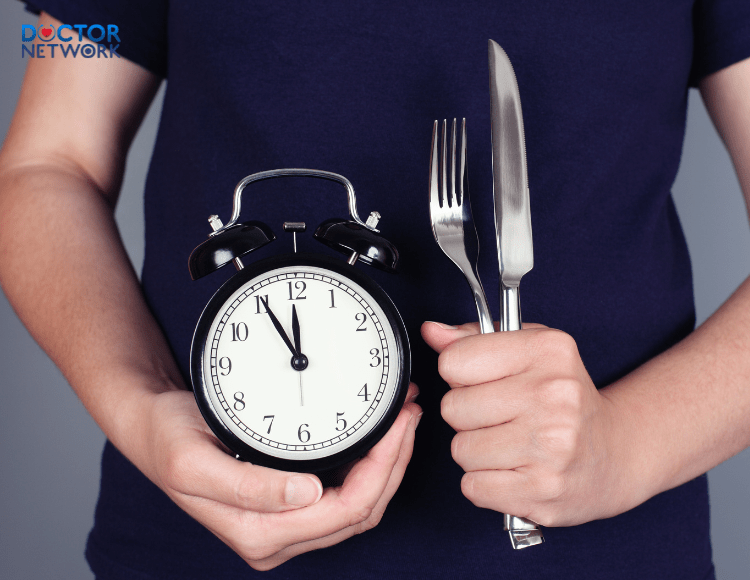The prevalence of overweight and obesity is on the rise, primarily attributed to excessive dietary intake leading to surplus energy conversion into fat. The question of how much to eat and the optimal meal frequency per day has become a topic of widespread interest. For those with normal weight, the choice between three main meals or multiple smaller meals is a consideration. However, how does this decision impact the digestive process, nutrient absorption, and overall health, especially for individuals struggling with overweight, obesity, or diabetes? This article aims to address these questions with insights from Assoc. Prof. Nguyen Anh Tuan, MD, PhD.
Meal Frequency and Digestive Impact
The ideal number of meals per day depends on individual health conditions. Generally, a recommendation for everyone is to prioritize a healthy breakfast and consider smaller, more frequent meals for individuals with diabetes.

Dividing meals into smaller portions is a commonly adopted approach among individuals dealing with overweight and obesity
For those in good health, choosing between three main meals or dividing meals into smaller portions throughout the day, as long as the food choices are healthy, does not significantly affect the metabolic rate. However, individuals seeking weight loss, especially those with obesity, may consider intermittent fasting as a strategic dietary approach, proven to lower blood sugar levels, increase insulin sensitivity, and reduce insulin concentration.
Metabolic Rate and Meal Size
- The metabolic rate, representing the calories burned within a specific timeframe, is not significantly affected by meal frequency.
- The total energy expended during the digestion process depends on the overall food intake. Studies comparing meal frequency have concluded that it has no substantial impact on metabolic rate or the total amount of lost fat.
Benefits of Intermittent Fasting for Overweight and Diabetic Individuals
Intermittent fasting, involving strategic meal skipping at specific times, has shown various health benefits. It improves insulin sensitivity, lowers blood sugar, reduces insulin concentration, and induces autophagy, a cellular cleaning process. Research on animal and human models suggests that intermittent fasting contributes to longevity and helps manage conditions like obesity, diabetes, cardiovascular diseases, and cancer.
Breakfast and Blood Sugar Control – a Need for Overweight and Diabetic Individuals
- Eating a healthy breakfast aids in kickstarting the metabolic process throughout the day and can contribute to weight loss.
- Individuals skipping breakfast are more likely to be obese compared to those who have a morning meal. However, while breakfast supports blood sugar control, data does not conclusively prove its effectiveness in weight loss.

The question of how many meals one should have in a day is a common concern for individuals dealing with overweight and obesity
Intermittent Fasting Approaches
Intermittent fasting can be implemented through various strategies, such as daily fasting, the 5:2 method (two fasting days per week), or time-restricted eating (confining eating within a limited daily timeframe). Studies mostly involve young, healthy participants, and further research is needed to assess the applicability and benefits of intermittent fasting for older individuals, those with multiple health issues, and those with diabetes or obesity.

Intermittent fasting is strategically abstaining from eating during specific periods of time
In conclusion, the article sheds light on the complex overweight and obesity and meal frequency, emphasizing the potential benefits of intermittent fasting. The decision on meal frequency should be personalized based on individual health status. The information provided aims to offer valuable insights for readers.
Kiểm Duyệt Nội Dung
More than 10 years of marketing communications experience in the medical and health field.
Successfully deployed marketing communication activities, content development and social networking channels for hospital partners, clinics, doctors and medical professionals across the country.
More than 6 years of experience in organizing and producing leading prestigious medical programs in Vietnam, in collaboration with Ho Chi Minh City Television (HTV). Typical programs include Nhật Ký Blouse Trắng, Bác Sĩ Nói Gì, Alo Bác Sĩ Nghe, Nhật Ký Hạnh Phúc, Vui Khỏe Cùng Con, Bác Sỹ Mẹ, v.v.
Comprehensive cooperation with hundreds of hospitals and clinics, thousands of doctors and medical experts to join hands in building a medical content and service platform on the Doctor Network application.


























